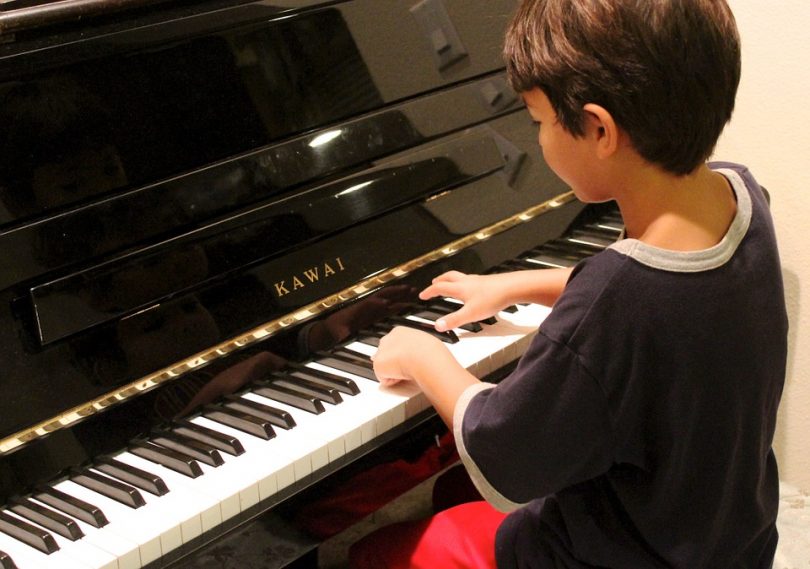We’ve gathered some of the best tips to kick-start your child’s musical development.
There’s no doubt about it: the benefits of a child learning an instrument are vast. It’s fun, boosts their creativity, and allows them to develop a range of skills otherwise barred from them. Not to mention that they’ll (hopefully) be able to play some beautiful music down the line. But where to begin? We’ve gathered some of the best advice out there to get you started.
Start early
If your child shows an early interest in music – such as clapping perfectly to a complicated rhythm or being able to sing a melody succinctly they heard only once before – there’s the general rule that the sooner they start, the better. Children always learn faster and see a lot of general tasks as a game. Consequently, allowing them to get a head start can work wonders in the long run.
Choose the right instrument
Of course, all children are different. And all children have different tastes. Therefore, it should seem logical to let them play the instrument of their choice. But there are also other things to take into consideration. Is the child old enough for the instrument? Heavy brass instruments, such as the trumpet or trombone, require a lot of air and may be too difficult for younger children.
While there are child-friendly variations of instruments, it may be counterproductive to let kids play an altered version of the instrument they wish to play at the beginning. Why? Well, they may develop bad habits which will have to be unlearned when they’re old enough for the real deal. Waiting a few more years may prove better in the long run.
In the meantime, you may want to let your children satisfy their musical urge by letting them play an instrument different, but similar to the one they eventually wish to play. Start them out on a recorder if they fancy playing the flute, for instance. Or how about starting with this Casio digital piano, which will enable them to learn a lot of musical theory from the start?
Be supportive
Learning an instrument requires a lot of dedication. Their taste in music is probably much greater than their skill at the start, so patience is key. Since some children can get rather frustrated, it’s therefore vital for the parents to be supportive. Find them places where they can interact with other music-enthusiasts – such as a band or an orchestra – and always go to their concerts, if they wish to play in public. If they seem to lose interest and stop practising, think of new ways of daily encouragement and try to bring the fun back.
Get a private tutor
Unless you or anyone else in your family has already mastered the instrument your child has set their heart on, you definitely want to invest in a good private tutor. Talk to other parents who may know good private tutors. There are plenty of tutors who offer online lessons, more so now than ever with social distancing still in place. Always make sure your child feels comfortable with them.
Don’t force it
Sometimes a parent’s wish for their child to learn an instrument is greater than that of the learner. In such cases, a pushy parent may become overbearing and cause a lot of frustration – even if it’s meant to be in the child’s best intention. But in such cases, it’s probably better to let loose every once in a while and give the child some room to breathe. And if learning the instrument in the long run is the cause of too much stress, it may even be better to let the child drop it completely. While this is obviously a great pity, there really are worse things in the world than a child not learning an instrument.
If you’ve read our advice, you probably have an idea whether you wish to help your child start to learn an instrument or not. There are, of course, other things to take into consideration. You probably know best whether they really want it or whether it’s just your own fancy which is pushing them in that direction. Listen to your heart, and above all else to your child, and hopefully you’ll be embarking on a journey together into the wonderful world of music.








